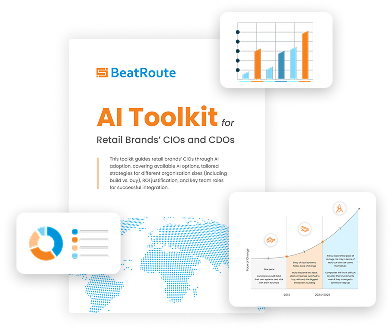Trade Promotion ROI KPI
This article is part of BeatRoute’s free Retail RTM Certification Program. You can read it right here, or head over to the certification page to explore all KPI articles, take a quick test, and earn your career certification.
Learn. Apply. Get Certified.
Trade Promotion ROI KPI
Trade Promotion ROI (Return on Investment) evaluates the effectiveness of marketing and sales promotions targeted at channel partners, retailers, or distributors. It measures the incremental value generated from trade promotions relative to the cost incurred.
For consumer goods brands, this KPI is essential to ensure that trade spending delivers tangible returns, drives short-term volume, and contributes to long-term brand value.
Why Trade Promotion ROI Matters
- Quantifies the financial return on trade promotions
- Helps optimize trade spend and reallocate budgets efficiently
- Drives accountability for promotion design and execution
- Supports brand decisions on future campaign planning
- Enables granular ROI tracking across SKUs, geographies, or retail channels
How to Measure Trade Promotion ROI
The ratio of incremental sales generated by a trade promotion to the cost invested in executing it.
Formula:
Trade Promotion ROI = (Incremental Sales from Promotions – Promotion Cost) divided by Promotion Cost multiplied by 100 percent
Example: If a promotion drove $120,000 in incremental sales at a cost of $40,000, ROI = (120,000 – 40,000) / 40,000 * 100 = 200 percent
Analysis typically relies on sales lift versus baseline, tracked through sales data and pre-post campaign comparisons.
What Drives Trade Promotion ROI
- Promotion planning, targeting, and design
- Distributor and outlet participation rates
- Execution quality and in-store visibility
- SKU availability and stock replenishment during promo period
- Field team capability to activate and track promotions
Let’s explore the key sub KPI: Incremental Sales from Promotions
Sub-KPI: What Is Incremental Sales from Promotions?
The additional sales volume or value achieved due to a trade promotion over and above the baseline sales.
Why It Matters
- Directly impacts ROI by quantifying lift in demand
- Helps isolate promotion effectiveness from organic sales growth
- Informs future promotional planning and timing
How It’s Measured
Incremental Sales = Actual sales during promotion – Baseline sales (estimated without promotion)
How to Improve It
- Target promotions in high-response outlets and seasons
- Ensure SKU availability and fulfillment capacity
- Train field teams to execute and track promotions accurately
How This Sub KPI Drives Trade Promotion ROI
Incremental sales are the primary input for calculating ROI. The greater the sales uplift achieved through efficient execution, the higher the return on every promotional dollar spent.
How to Drive Execution at Scale
- Set promotion-linked sales goals per outlet or rep
- Monitor real-time sales uplift across territories
- Align beat plans with promotion periods
- Track fill rate and scheme adoption in the field
How BeatRoute Can Help
This is where BeatRoute’s goal-driven AI framework comes in:
- Set outlet or SKU-specific trade promotion goals with real-time tracking of sales uplift
- Trade Promotion ROI by linking promotional efforts, including period purchase schemes, actual sales outcomes, ensuring promotions enhance distribution quality and drive measurable returns.
- Empower field reps with agentic AI workflows that prompt promotion setup, track scheme availability, and nudge reps for timely execution
- Gamify field performance by rewarding reps for high scheme adoption and incremental sales conversion
- Solve execution drop-offs with BeatRoute Copilot, which flags non-performing promos and suggests quick tactical adjustments to managers
Conclusion
Trade Promotion ROI is a critical financial KPI that helps brands validate promotional effectiveness. By driving incremental sales through structured execution and smart tracking, consumer brands can maximize the return on every promotional investment.
👉This KPI is a core execution metric recognized across the global consumer goods and FMCG industry. It is widely used to measure field performance, outlet-level impact, and sales execution effectiveness. Tracking this KPI helps retail brands align local and national execution with broader business goals like growth strategy, market expansion, and profitability.


